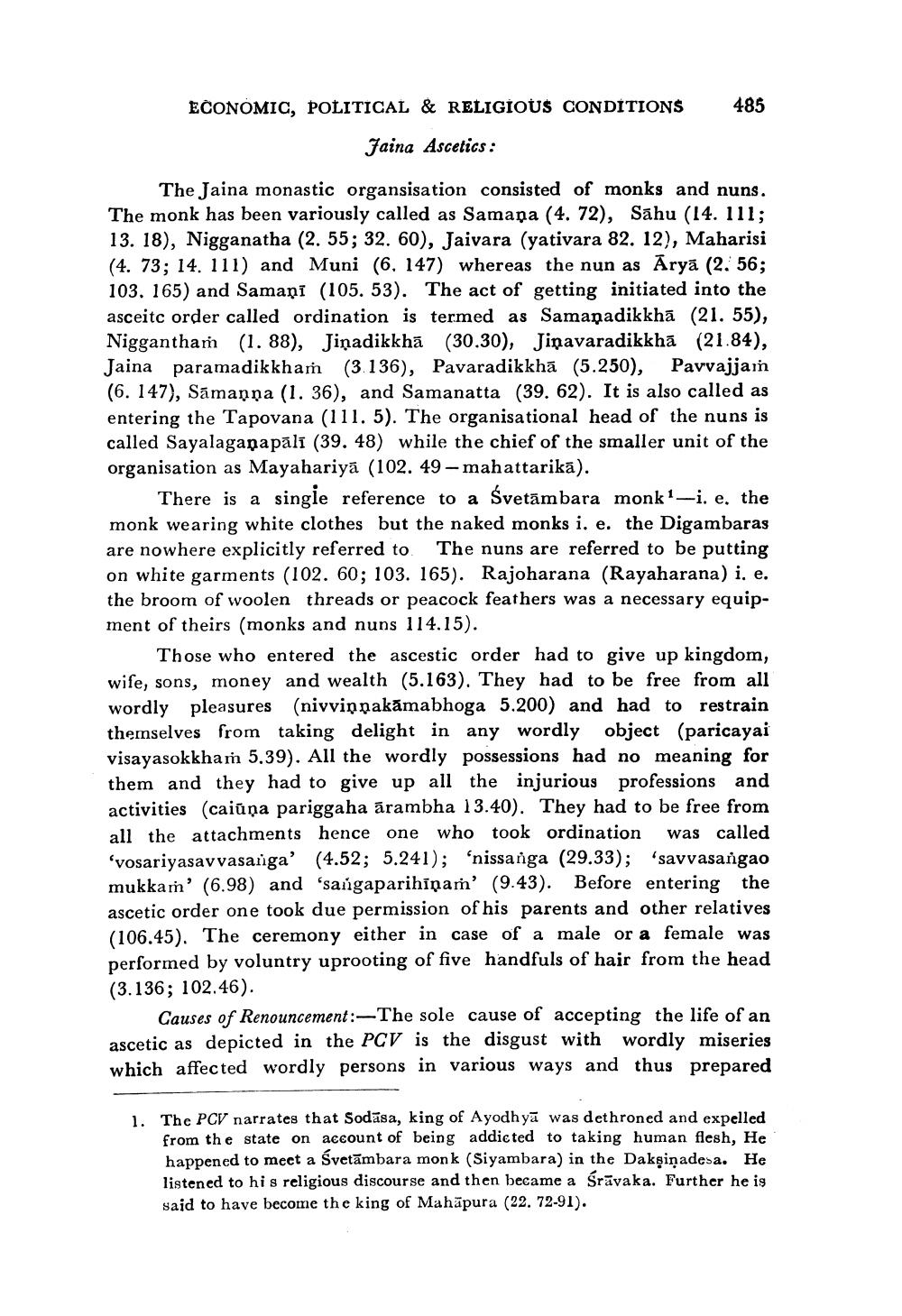________________
ECONOMIC, POLITICAL & RELIGIOUS CONDITIONS
485
Jaina Ascetics :
The Jaina monastic organsisation consisted of monks and nuns. The monk has been variously called as Samaņa (4. 72), Sāhu (14. 111; 13. 18), Nigganatha (2. 55; 32. 60), Jaivara (yativara 82. 12), Maharisi (4. 73; 14. 111) and Muni (6, 147) whereas the nun as Arya (2, 56; 103. 165) and Samani (105. 53). The act of getting initiated into the asceitc order called ordination is termed as Samanadikkhā (21. 55), Nigganthaṁ (1. 88), Jiņadikkhā (30.30), Jinavaradikkhā (21.84), Jaina paramadikkhar (3.136), Pavaradikkhā (5.250), Pavvajjain (6. 147), Sāmaņņa (1. 36), and Samanatta (39. 62). It is also called as entering the Tapovana (111. 5). The organisational head of the nuns is called Sayalaganapali (39. 48) while the chief of the smaller unit of the organisation as Mayahariya (102. 49- mahattarikā).
There is a single reference to a Svetām bara monk-i. e, the monk wearing white clothes but the naked monks i. e. the Digambaras are nowhere explicitly referred to. The nuns are referred to be putting on white garments (102. 60; 103. 165). Rajoharana (Rayaharana) i, e. the broom of woolen threads or peacock feathers was a necessary equipment of theirs (monks and nuns 114.15).
Those who entered the ascestic order had to give up kingdom, wife, sons, money and wealth (5.163). They had to be free from all wordly pleasures (nivvinpakāmabhoga 5.200) and had to restrain themselves from taking delight in any wordly object (paricayai visayasokkham 5.39). All the wordly possessions had no meaning for them and they had to give up all the injurious professions and activities (caiūņa pariggaha ārambha 13.40). They had to be free from all the attachments hence one who took ordination was called ‘vosariyasavvasariga' (4.52; 5.241); 'nissanga (29.33); "savvasangao mukkam' (6.98) and 'sangaparihiņam' (9.43). Before entering the ascetic order one took due permission of his parents and other relatives (106.45). The ceremony either in case of a male or a female was performed by voluntry uprooting of five handfuls of hair from the head (3.136; 102.46).
Causes of Renouncement:- The sole cause of accepting the life of an ascetic as depicted in the PCV is the disgust with wordly miseries which affected wordly persons in various ways and thus prepared
1. The PCV narrates that Sodāsa, king of Ayodhyā was dethroned and expelled
from the state on account of being addicted to taking human flesh, He happened to meet a Svetāmbara monk (Siyambara) in the Dakşiņadesa. He listened to his religious discourse and then became a Śrāvaka. Further he is said to have become the king of Mahāpura (22. 72-91).




